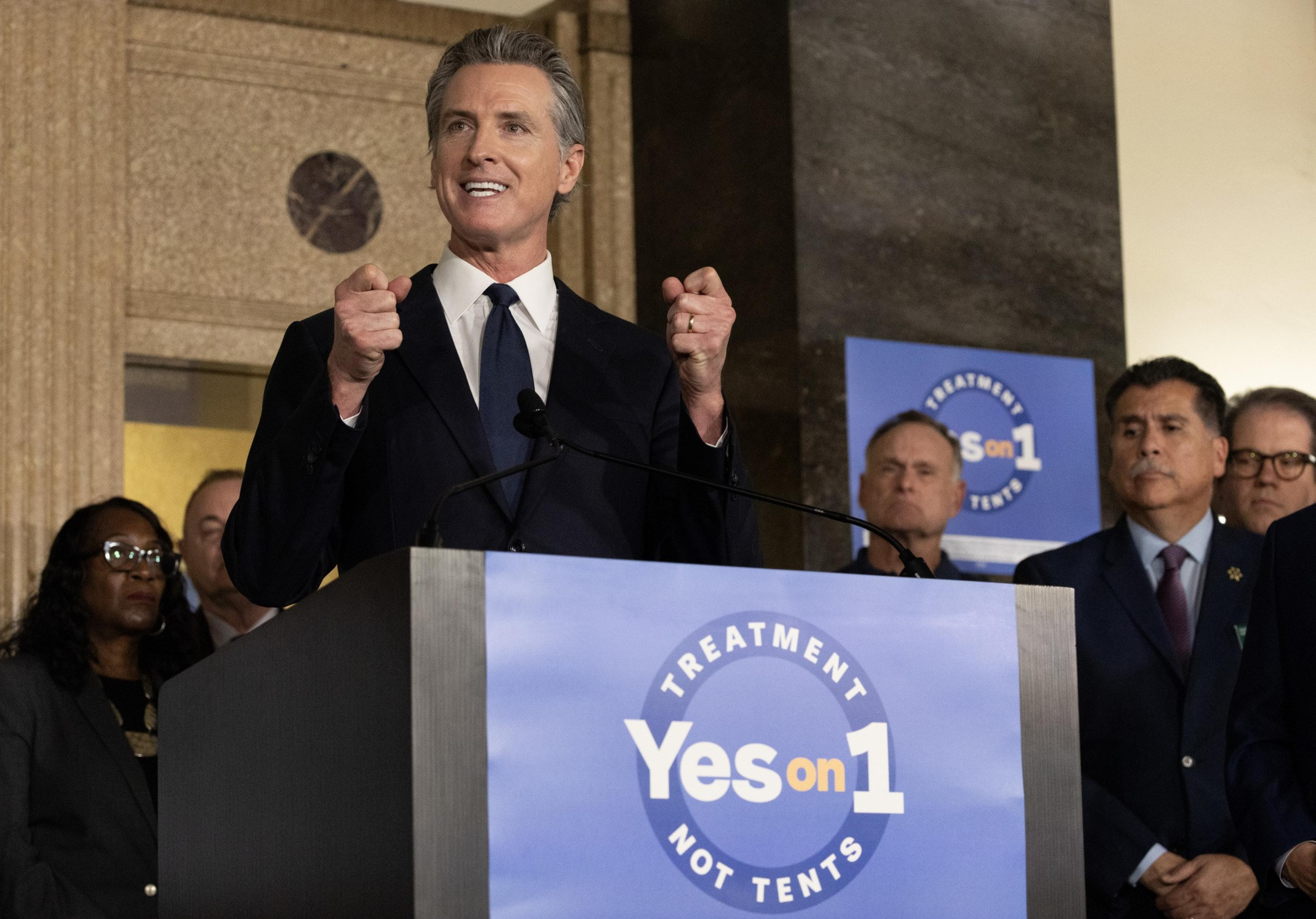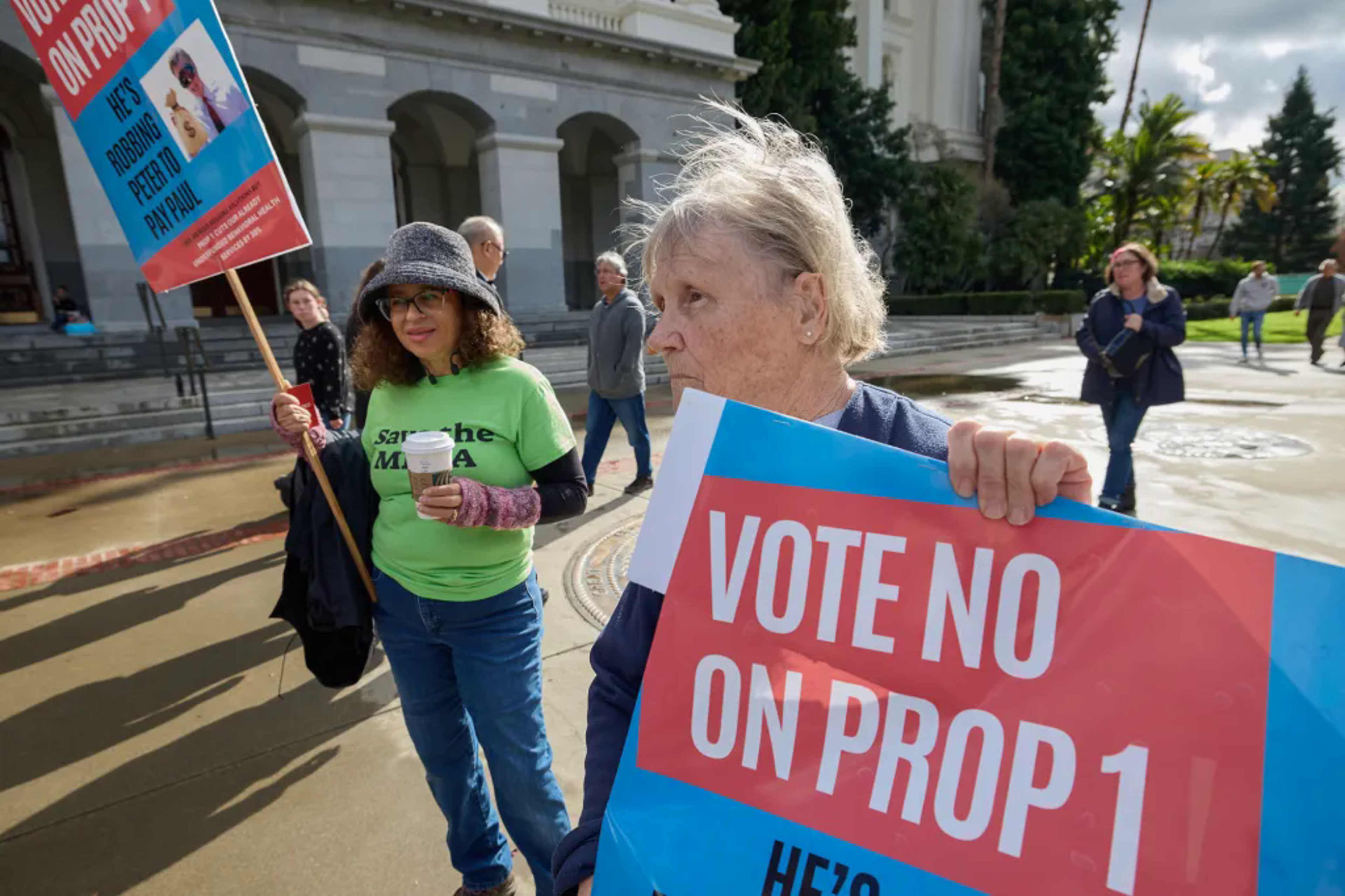A week after the March 5 election, opponents of Proposition 1 waved the white flag (opens in new tab), conceding that Gov. Gavin Newsom’s mental health ballot measure would likely pass.
This week, the anti-Prop. 1 campaign withdrew its concession and revived its efforts (opens in new tab). What changed?
For one thing, the vote count tightened: As of late Tuesday, Prop. 1 was ahead by 19,617 votes, with about 7 million ballots counted and some 220,000 left to be tallied, according to the Secretary of State (opens in new tab).
And for another, Newsom’s political action committee put out an appeal late last week for volunteers to reach out to Democrats who had their ballots rejected—for mismatched signatures or other reasons—to fix them and get them counted. The training was Sunday.
“Governor Newsom needs you. … The votes are being counted and it is CLOSE. Like, just a couple thousand votes close,” the appeal said.
Prop. 1 opponents called that strategy “sleazy” and “an attempt to manipulate the final vote count by harvesting the votes of only some partisans in certain areas.”
But the foes said they’re launching a similar effort and refocusing their website to help voters (opens in new tab) confirm their ballots were counted and to assist voters whose ballots were rejected.
“We believe all ballots should be counted,” Paul Simmons, a director of Californians Against Prop. 1, said in a statement. “We know that many Democrats voted against Prop. 1, so the governor’s effort is no slam dunk. If you’re a Republican or independent, we want you to know that your ballot might make the difference in this election. But the governor won’t help you. We will.”
“We don’t know if reviving rejected ballots will change the outcome of this election,” Simmons added, “but if the governor thinks it might, we for damn sure aren’t going to let him have the field to himself.”
About 42,500 voters have time to fix signature problems with their ballots, according to election analyst Paul Mitchell (opens in new tab).
Asked about Prop. 1 during a visit to the state Capitol on Monday, Newsom told reporters (opens in new tab): “We’re looking forward to the final count.”

The Prop. 1 results would have to get even closer, however, for a recount.
There are no automatic recounts for statewide ballot measures (opens in new tab). But a campaign can request one in specific counties — if it’s willing to pay for it. That could be a hurdle for the cash-strapped Prop. 1 opponents if the measure narrowly passes.
There’s another provision in state law that could also come into play: The governor can order a state-funded hand recount of all votes statewide if the official results show a difference between “yes” and “no” votes on a ballot measure of 1,000 votes or less, or 0.00015 percentage points or less—and the latter would be the key number. As of Monday’s vote count, the second threshold was 1,056 votes for Prop. 1.
So if Prop. 1 fails that narrowly, it wouldn’t be a surprise if Newsom uses this provision. Such a recount order would have to come within 36 days of the primary, or by mid-April.
